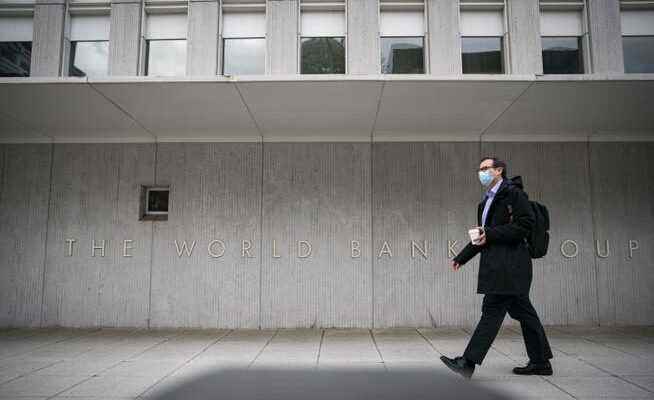Switzerland has been part of the World Bank Group for thirty years. And for a similar length of time, the development organization has been warned to be more selective in terms of content. Such insistence seems more urgent now than ever.
Self-restraint is not a strength of the World Bank – the picture shows the headquarters in Washington.
On the international stage, Switzerland tends to be a lightweight. But there are exceptions, such as the Bretton Woods institutions, i.e. the World Bank Group and the International Monetary Fund. There, the small Alpine state operates above its own weight class by leading its own constituency since joining thirty years ago. Switzerland’s opinion is also heard in Washington, where the World Bank and the Monetary Fund have had their headquarters since they were founded in 1944.
Helvetistan celebrates birthday
The milestone birthday was celebrated this week, over a period of several days Meeting in Bad Ragaz. The nine members of the Swiss constituency – sometimes also referred to as Helvetistan because of the many Central Asian states – discussed their own cooperation and current business in the St. Gallen community. Hopefully, being able to do this outside of the Washington bubble has sharpened our focus on all the things that are going in the wrong direction at headquarters.
Above all, a disastrous trend is the dissipation of the World Bank. Originally set up to help rebuild after the Second World War, the development bank now feels responsible for almost every problem on this planet. Fighting global poverty has long since stopped being satisfied. From climate change, pandemics, migration, humanitarian emergency aid to the protection of rare animal species, the bank has been taking on many other tasks for years.
Fear of losing meaning
All of the above tasks are important. However, there are usually other and more suitable actors to fulfill them. But the World Bank is plagued by the same fear that plagues all state organizations: the fear of losing importance. For the mere mobilization of capital for developing countries – once a core task of the bank – the organization has long since hardly been needed; Thanks to liberalized capital markets, there are many alternatives to this, be it bonds, direct investments or private donations. So the World Bank is expanding into other areas.
The involvement in the Ukraine conflict also seems exorbitant. So did the World Bank recently presented a plan, which provides for additional spending of 170 billion dollars by June 2023 to cushion the global war. That’s a lot of money even for the World Bank. In doing so, she strains her own balance sheet to the breaking point. If a new crisis emerges at some point, which should always be realistically expected, the reserves are lacking. Developing countries that are not in the spotlight could then be the ones to suffer.
insistence of Switzerland
The World Bank must realize that it cannot do everything. A clear focus is needed, but also better coordination with other international financial organizations. Development banks in some countries must not stand on each other’s toes. Funds are also scarce in development policy. Against the background of increasing military spending and expensive energy shortages, it is unrealistic to bet that the state owners will quickly inject more money into the World Bank if necessary.
This is where Switzerland comes into play. It is one of the few countries in Washington that has been urging the World Bank to be more selective for years. That rarely makes headlines. And in view of the almost unstoppable accumulation of tasks, Swiss criticism has not been very successful so far. Nevertheless, the insistence is important and correct. Because the World Bank is a valuable knowledge organization. However, she can only use her knowledge optimally if she occasionally has the courage not to do certain things.
